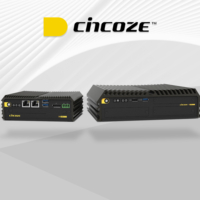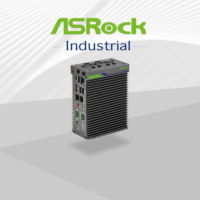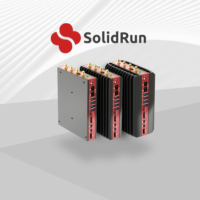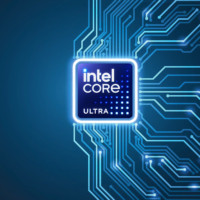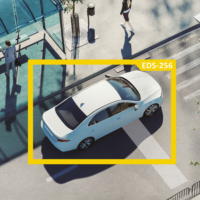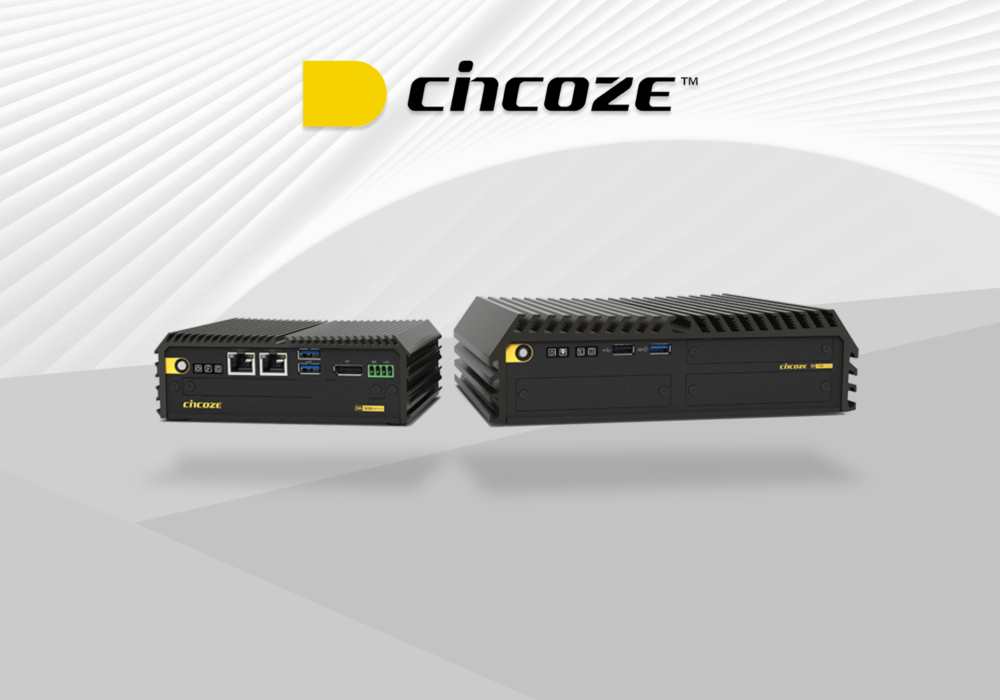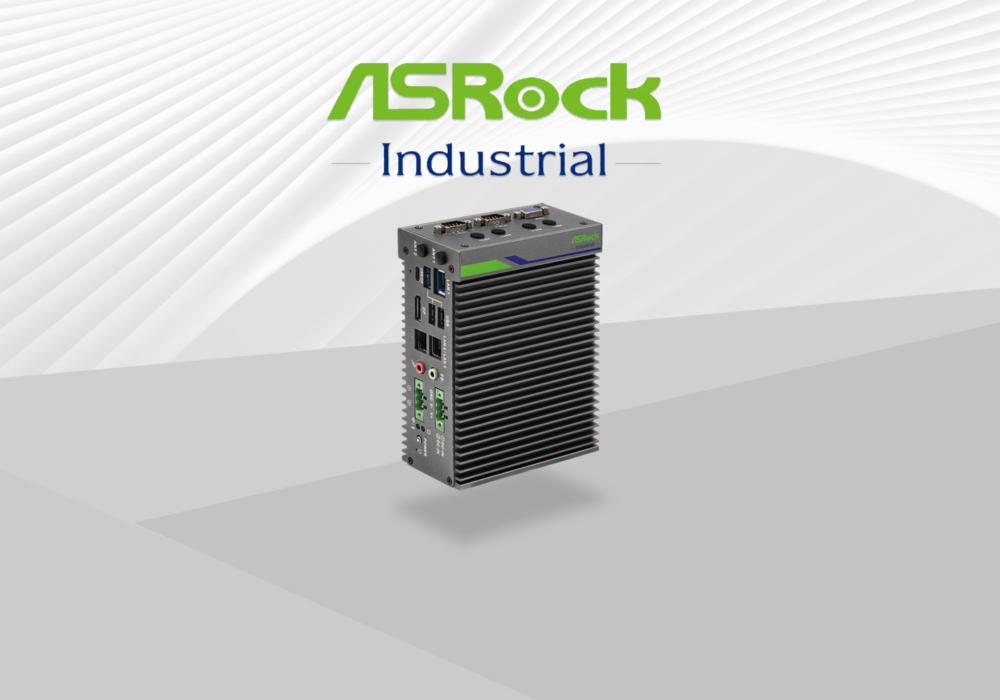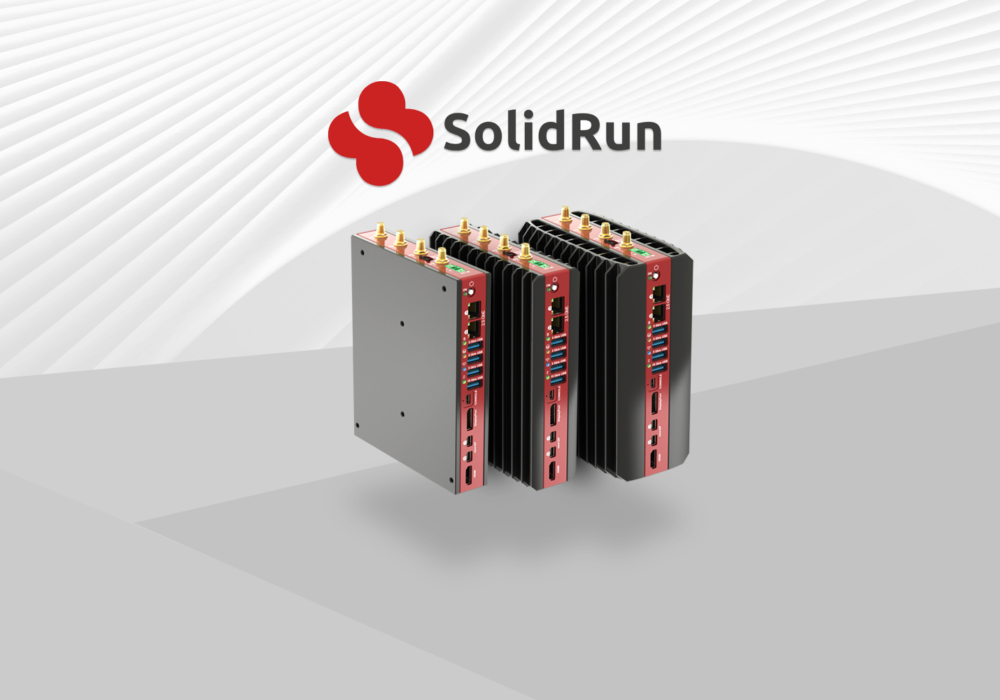In this article:
- Introduction
- What is UL?
- Why is UL Certification Important for Industrial PCs and Other Industrial Automation Devices?
- Why Should You Always Look For Safety Marks For Industrial Use Cases?
- What Is The Difference Between UL Listed and UL Recognised? (UL Listed vs UL Recognised)
- What is UL Classified?
- Where Is UL Certification Accepted?
- What Types Of Tests Are Conducted As Part of UL Certification For Industrial PCs?
- Markets That Benefit From UL Listed Products
- How UL Certification Can Benefit Industrial PCs?
- Summary
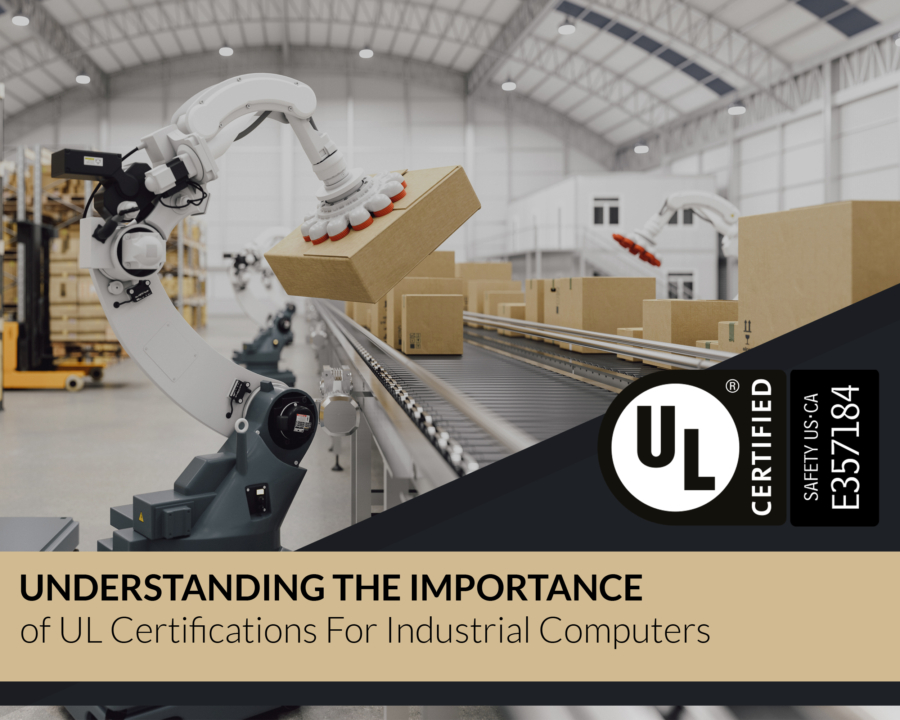
Introduction
In demanding industrial and environmental conditions, applications at the edge require mission-critical reliability. UL (Underwriter Laboratories) certifications offer peace of mind, assuring end users of thorough safety and standard compliance testing for their edge computing solutions. Many of the rugged edge computing products we offer, have comprehensive UL certification ensuring heightened safety and quality.
What is UL?
UL, or Underwriter Laboratories, is a globally renowned safety certification company, distinguished for its unwavering focus on product safety testing and the establishment of industry standards. Countless products undergo rigorous testing under UL’s scrutiny to ensure they meet exacting safety standards. Enterprises find reassurance in UL certifications, as they offer a means to verify a product’s dependability and compliance with safety standards, ensuring it aligns with industry norms.
UL certifications are especially valuable for electronic devices that carry potential risks of fire and electrical shocks. Products bearing the UL safety mark provide immediate assurance to system integrators and end users, signifying that they have been rigorously tested for reliability in the face of electrical and flammable risks. Furthermore, UL has expanded its certification program to encompass various industries, including marine, IoT security, and more.
Why is UL Certification Important for Industrial PCs and Other Industrial Automation Devices?
In the world of industrial applications and deployments, challenges abound, from extreme temperatures to frequent shock, vibration, and chemical exposures. The consequences of downtime, maintenance, and worst of all, system failures, are not only costly but also disruptive to the production flow. Enterprises have come to recognise the paramount importance of product safety compliance as a critical aspect of their applications. This realisation has paved the way for UL certifications.
Uncertified or untested products leave enterprises with a sense of unease, particularly in industrial settings where highly intricate factory machinery is in operation. UL certifications serve as a beacon of safety, enabling enterprises to swiftly identify products that have undergone rigorous testing to meet safety standards. This, in turn, minimises potential points of failure, instilling confidence in original equipment manufacturers (OEMs) to incorporate specific devices into their final bill-of-material builds for their commercial systems.
For example, UL certifications offer invaluable advantages for industrial PCs and various automation devices. These certifications guarantee that the equipment not only meets rigorous safety standards but has also undergone extensive testing to identify and mitigate potential hazards and risks, such as electrical shock and fire hazards. Given the harsh and demanding environments in which industrial automation systems typically operate, durability and reliability are paramount.
Moreover, UL certification serves as a cornerstone for both manufacturers and users of industrial automation devices in adhering to safety regulations. It plays a pivotal role in reducing the potential for liability in case of an accident. In the grand scheme of things, opting for an industrial PC or an automation device with UL certification provides peace of mind and, in turn, bolsters confidence in the system’s safety, reliability, and performance.
Why Should You Always Look For Safety Marks For Industrial Use Cases?
As humanity strides boldly into the fourth industrial revolution, UL and other safety compliance certifications have emerged as a ubiquitous norm across a multitude of products. The various symbols and markings adorning the rear of electronic gadgets, household appliances, and akin commodities serve as reassuring emblems, assuring end users that these products have undergone rigorous safety testing prior to deployment. In the vast realm of industrial applications and deployments, the presence of a safety marking becomes indispensable for ensuring competent operations, encompassing:
- Industrial/Factory Automation
- Medical Inferencing
- NVR Surveillance
- Smart Kiosk Machines
- Vehicle Fleet Telematic
& more.
When it comes to devices, particularly electronics, the absence of safety marks should serve as a warning. It indicates that the respective company has chosen not to subject their products to rigorous safety compliance testing. As mentioned earlier, system failures and downtimes exact a heavy toll, resulting in unwelcome complications. Safety marks provide peace of mind, assuring consumers that the product has undergone meticulous scrutiny in adherence to stringent regulatory standards.
What Is The Difference Between UL Listed and UL Recognised? (UL Listed vs UL Recognised)
UL Listed: The entire product or system has undergone and met the full UL safety standard guidelines.
UL Recognised: A component (expected to be integrated into a larger system) meets UL safety standard guidelines.
However, when integrated into the larger system, the system as a whole is not UL certified.
Within the realm of UL safety marks, a range of certifications exists, including UL marks tailored to regional standards. One common source of confusion lies between UL Listed and UL Recognized. To clarify, UL Listed signifies that a standalone product has undergone rigorous testing, ensuring it complies with safety standards and guidelines. Conversely, UL Recognized is applicable to components or materials intended for integration into a larger system. These marks are particularly valuable to system integrators in their quest for validated components to construct complete systems.
To illustrate, consider a power supply for a computer, which may bear the UL Recognized mark as it forms part of a larger system. In contrast, a washing machine, being a self-contained product, may earn the UL Listed designation. In the context of industrial computers, they are typically UL Listed since they are not only capable of integration but are also fully functional as standalone units.


What is UL Classified?
UL Classification represents a distinct mark wherein a product undergoes assessment based on a specific attribute, be it fire resistance or impact resistance. This implies that a product bearing the UL Classified mark has been subjected to testing against a single attribute or a portion of the comprehensive UL standards list, rather than the entirety of the UL testing procedure. Due to its limited scope in testing, this certification is regarded as the fundamental tier of safety. UL Classified products do not undergo evaluation for safety in any other aspect apart from the particular property they are certified for.
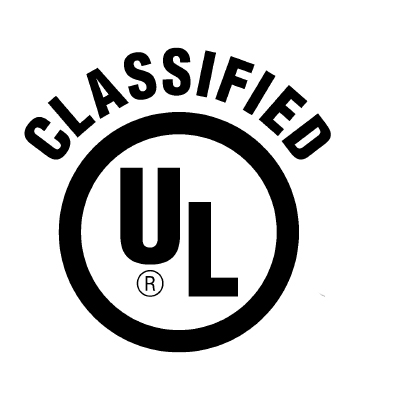
An example of a UL Classified product is a security door evaluated for resistance against bullets (UL 752) and fire resistance (UL 10C). It’s crucial to note that this designation doesn’t elevate the security door to being UL Recognized or UL Listed, as it hasn’t undergone the exhaustive full-scale testing procedure.
Underwriter’s Laboratories has acknowledged a common challenge for end users and consumers: the complexity of deciphering multiple certifications on products, not only from UL but also from various testing organizations. This jumble of certifications can be bewildering. To address this, their latest and improved UL Certified mark offers enhanced clarity. An optional QR code facilitates quick access to additional details, enhancing transparency. The enhanced UL Certified mark is applicable to UL Listed and UL Classified products, but not UL Recognized.
So, what sets UL Listed and UL Certified apart? UL Certified acts as an all-encompassing mark that covers both UL Listed and UL Recognized products. This thoughtful strategy ensures a consistent identification of the UL mark for end users and offers easy access to supplementary information via the convenient QR code.
Where Is UL Certification Accepted?
While UL is primarily recognized for its association with products intended for the North American market, it boasts a worldwide presence thanks to its collaborations with international bodies and standards organizations. Each UL certification mark is region-specific, designed to align with both the standards set forth by the International Electrotechnical Commission (IEC) and the distinct national standards of the targeted region.
The IEC, comprising 60 countries, plays a pivotal role in creating and establishing international standards that all its member nations must adhere to. National standards, on the other hand, are typically rooted in or closely aligned with IEC standards, though they may incorporate modifications tailored to the unique safety requisites of specific regions. Since each country or region maintains its own set of established standards, UL-Listed logos come accompanied by a regional mark, clearly indicating the national standards with which the product complies.
What Types Of Tests Are Conducted As Part of UL Certification For Industrial PCs?
UL certification for industrial PCs encompasses a diverse array of tests meticulously designed to verify the device’s compliance with safety standards and to evaluate it for potential hazards and risks. These comprehensive tests comprise essential facets of the UL certification process, which include electrical safety testing, fire hazard testing, and rigorous mechanical testing.
| Type of Testing: | Description: | Standard: |
| Electrical Safety Testing | Electrical components are limited to produce up to certain output rating | ES1 (SELV for IEC 60950-1) |
| Fire Hazard Testing | Materials will stop burning under a specific time limit | UL 94 |
| Mechanical Testing | Wiring and cabling components are insulated with compliant materials | UL AVLV2 |
Markets That Benefit From UL Listed Products
- Industrial and Factory Automation
- Rugged Edge AI
- Rugged Edge Computing
- Autonomous Vehicle Data Storage
- Kiosk Machines
- Medical Inference Analysis
- Mining Automation
- Rugged NVR Surveillance
- Vehicle Fleet Telematics
Electrical safety testing serves as a critical evaluation, ensuring that the device’s electrical components are crafted to avert electrical shock and other associated risks. The meticulous fire hazard testing verifies the device’s ability to withstand and forestall fires arising from electrical components, heating elements, or potential ignition sources. Mechanical testing, equally exacting, ascertains the device’s resilience against vibrations, shocks, and the rigours typical of industrial environments.
In addition, comprehensive testing procedures may be extended to evaluate compliance with environmental regulations, such as RoHS and WEEE. In totality, UL certification for industrial PCs encompasses a multifaceted battery of tests, guaranteeing the device’s safety and reliability for application in industrial automation environments.
How UL Certification Can Benefit Industrial PCs?
When it comes to selecting industrial PCs, UL certification emerges as a pivotal consideration. Underwriters Laboratories (UL), a globally esteemed safety certification body, offers independent testing and certification services across diverse industries, including industrial automation. UL certification guarantees that the industrial PC adheres to stringent safety standards and has undergone rigorous testing to mitigate potential risks, such as electrical shock, fire hazards, and other safety concerns.
Opting for an industrial PC bearing the UL certification bestows both manufacturers and users with a profound sense of confidence. This certification signifies that the device has withstood thorough testing and is well-suited for deployment in industrial settings. Beyond bolstering safety and compliance with regulations, UL-certified industrial PCs offer elevated reliability, durability, and performance. This makes them a prudent investment for applications like industrial automation, where safety and dependability are paramount.
Summary
In summary, UL certifications provide peace of mind and reliability in the world of industrial computing, making them a crucial consideration for those seeking dependable solutions in demanding environments.
